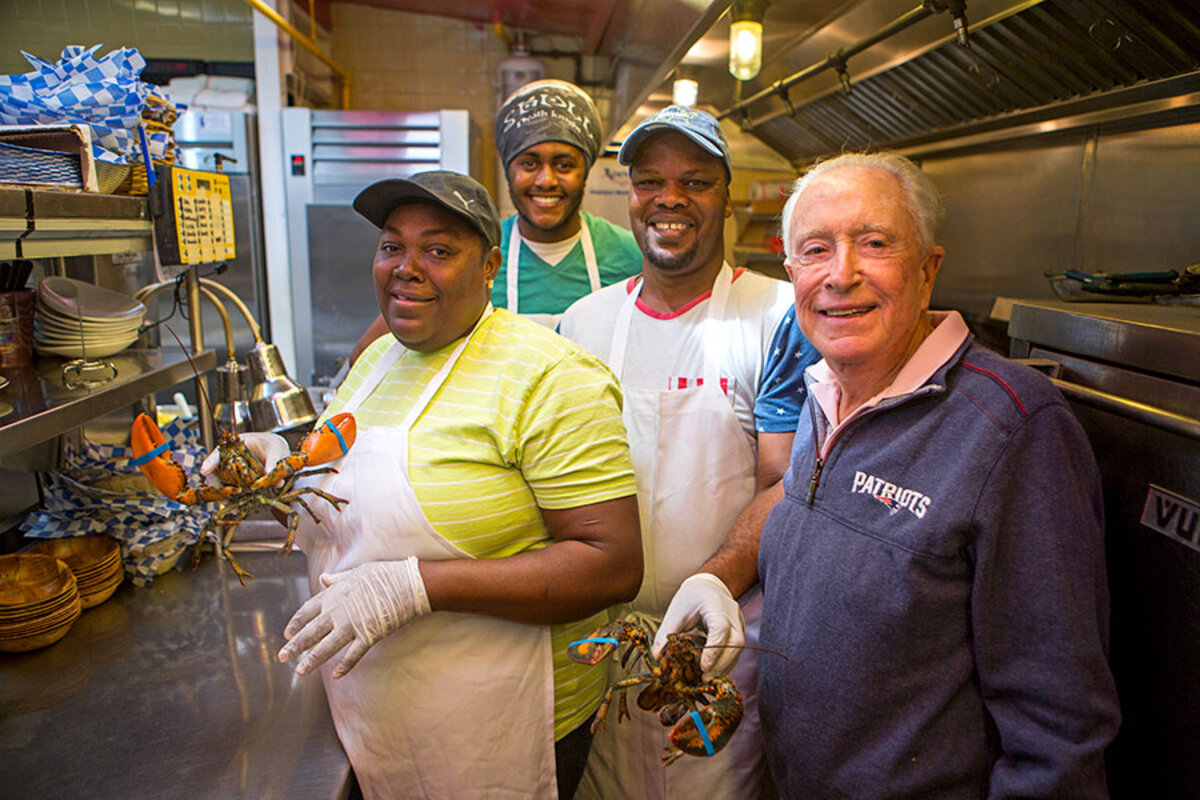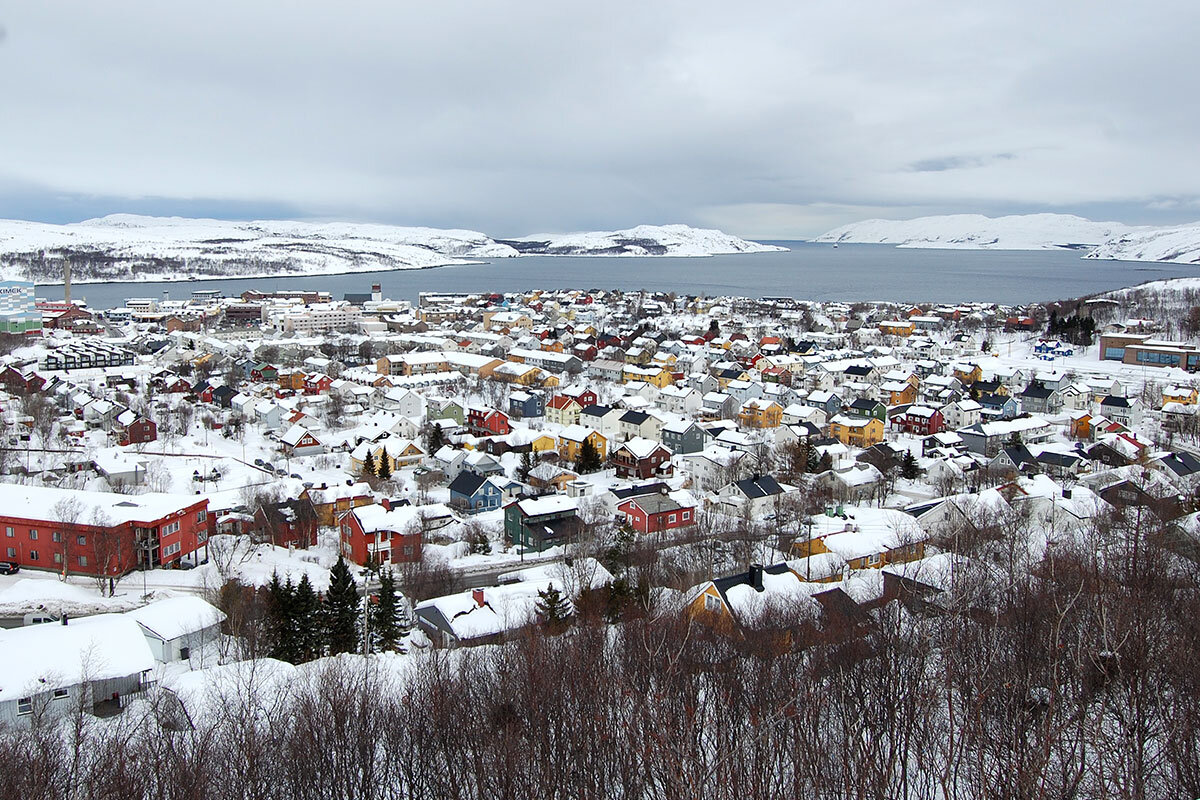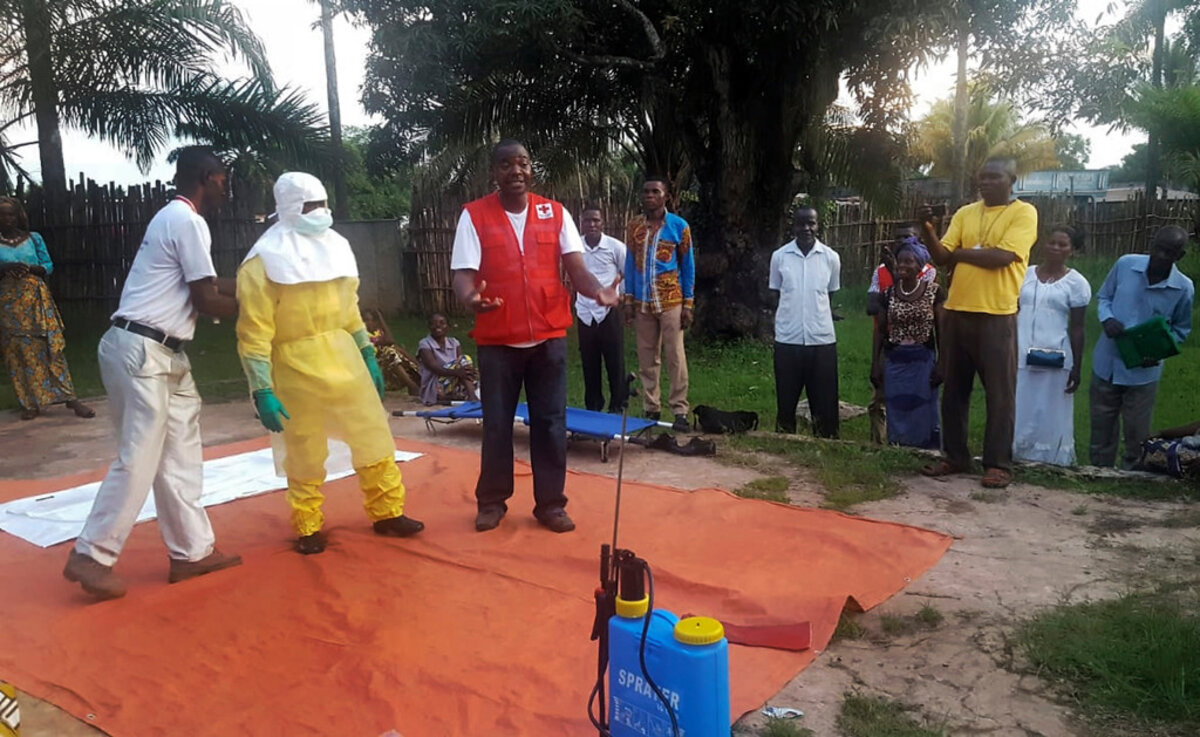How to deal with rogue nations? Recent US experiments with "regime change" in Iraq and Afghanistan appeared to delist the policy as an option. But in the latest iteration of the Trump administration, a freshened "troop-less" version is getting a look.
Monitor Daily Podcast
- Follow us:
- Apple Podcasts
- Spotify
- RSS Feed
- Download
 Clayton Collins
Clayton Collins
They met in the middle.
No, not international political leaders. That cohort had another bad stretch: Talks between the two Koreas dissolved. Plans for a US-North Korea summit wobbled. A NAFTA reboot was kicked down the road, though credible players, including the architect of NAFTA under the first President Bush, urged action. America’s withdrawal from the Iran nuclear deal continued to reverberate.
But down on the Rio Grande, the river that forms America’s increasingly contentious southern border, ordinary people – from the West Texas town of Lajitas and its Mexican sister city, Paso Lajitas – waded into the shallow water. They splashed and sunned and shared food.
The Voices From Both Sides festival, first held in 2013, is one part family reunion, one part protest picnic. The US Border Patrol doesn’t get worked up about it. Local sheriff’s deputies hang back, sometimes having cordial exchanges with attendees at the edges.
This year the party was “bigger than ever,” The Nation reported. “Families are seeing each other,” Collie Ryan, from the Texas side, told a reporter. “It’s beautiful to see.”
Generally the human preference for connecting, not conflicting, is bigger than the political infighting we so often see. On the Korean Peninsula, a militarized border separates families, parting briefly at officials’ whim for rare reunions between people who await a lasting thaw. In Iran, some shake fists at American policymakers across an ideological frontier while expressing warm feelings toward American people.
There has been action in Congress, renewed today, to try to force a vote on US immigration policy. Another chance to meet in the middle?
We’re following the news of the school shooting in Texas today. Education editor Kim Campbell is at a conference in Los Angeles where there has been discussion of the planning by student activists, including the Parkland, Fla., students, of a summer tour starting June 15 in Chicago to keep the conversation about gun violence going. There's a separate push to encourage voting-age students to become part of an eventual political solution to the social scourge. “This isn’t just an issue that we care a lot about,” said a student from Newtown, Conn., who was in attendance. “This is a part of us now.”
Here are our five stories for today.










